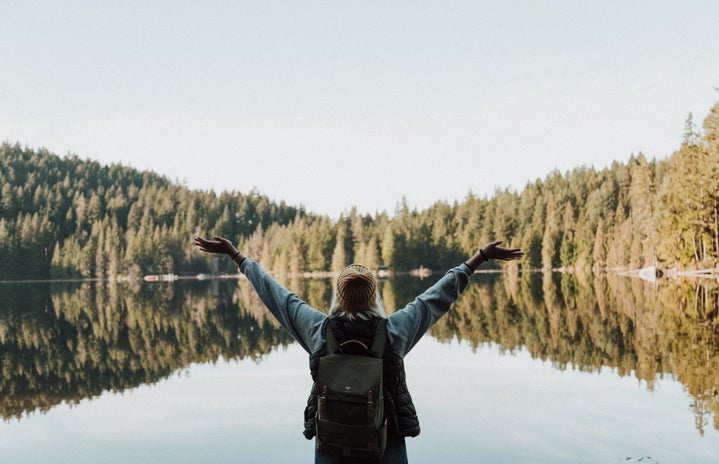Like many, I’ve struggled with accepting my body and my self-image for most of my life. I’ve never quite looked at myself the same way after receiving a smattering of unwelcome and thoroughly objectifying comments made by friends and family members early in my adolescence. For a long time, my security blanket was made of friends that made me laugh and tormented me equally. Being surrounded by other women in single-gender schools for ten years, I also witnessed countless friends battling disordered eating and body dysmorphia, which further grounded the importance of looking a certain way into me. It was early into my self-consciousness that many of my thoughts revolved around immovable facts of my physical appearance.

When the concept of “body positivity” first emerged, it was framed as a welcome respite from being hateful towards one’s body and appearance. It seemed to embrace different looks as equally attractive, and it seemed to uplift body types that were traditionally excluded from mainstream narratives of advertising and the media. On paper, it appears easy enough to stand in front of a mirror and observe, laud, and affirm all the unique markers that makes one look like oneself. But as I continued to stare at my reflection every day, phrases like “I love my hips and thighs” and “I look great” swimming meaninglessly around my head, all I could continue to zero in on were the things that I couldn’t bring myself to find beautiful.
I’m not the only one who finds that body positivity has become a loaded, yet vague term bandied about by people that were not necessarily the intended target audience of the movement—companies and supermodels and the Kardashian family alike continue to capitalize off it. Moreover, it has regressed to revolving entirely around the concept of attractiveness. I love that body positivity preaches a flexibility to what is regarded as attractive, but I personally want another way of accepting my body that doesn’t revolve around being essentially an object of beauty—hence, body neutrality, which focuses more on what you can do and what you are, instead of what you can’t do and what you aren’t.

When we take that step to listen to our bodies and when you nourish your being with good hydration, regular hours of sleep and the self-care routines that work for you, it becomes easier to slip into a lifestyle that keeps you feeling strong and present. I try to be mindful of what I truly need in that moment to feel better, whether it be straightening my posture, taking a nap, going on a walk outside or playing with makeup for a bit. Not all of us need the same things. Some of us have a lower threshold for movement, some of us need more rest, some of us are more sensitive to temperature and humidity. Our bodies come with so many variations, with so many unique capacities, and we should live with that in mind.


If you find yourself stuck in the same toxic patterns with your body image, I hope that in 2021 you’re able to find something different, something better and more authentic. I hope that embracing body neutrality will be the start of something new.



